Israel at War: What happened on day 18?
Over 1,400 murdered, more than 5,400 wounded • IDF: 222 captives in Gaza, two released by Hamas on Monday night
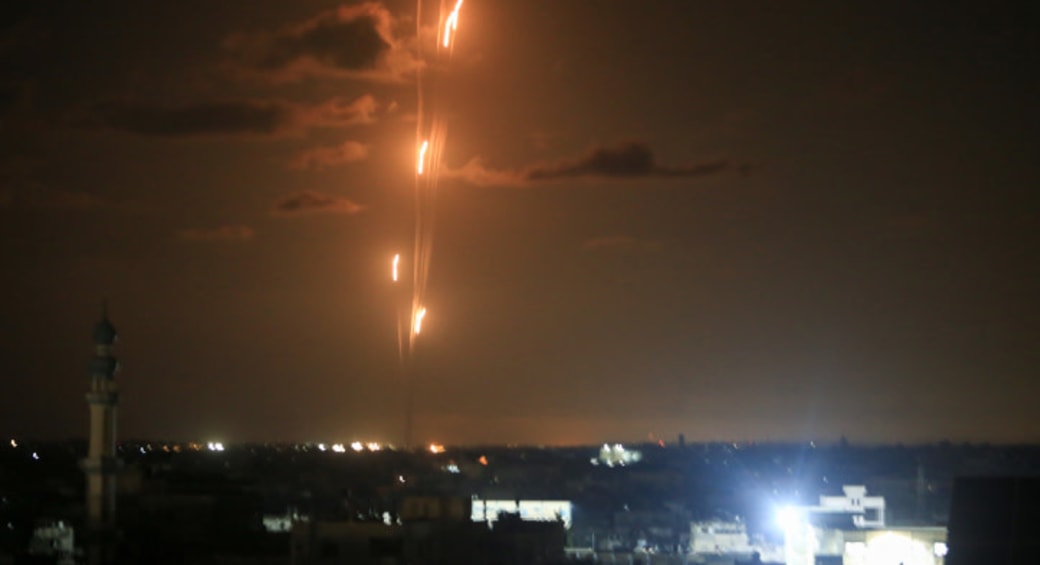

Israel strikes in Syria after rocket sirens sound in Golan Heights
The IDF said two rockets were launched at Israel from Syria and fell in open fields.
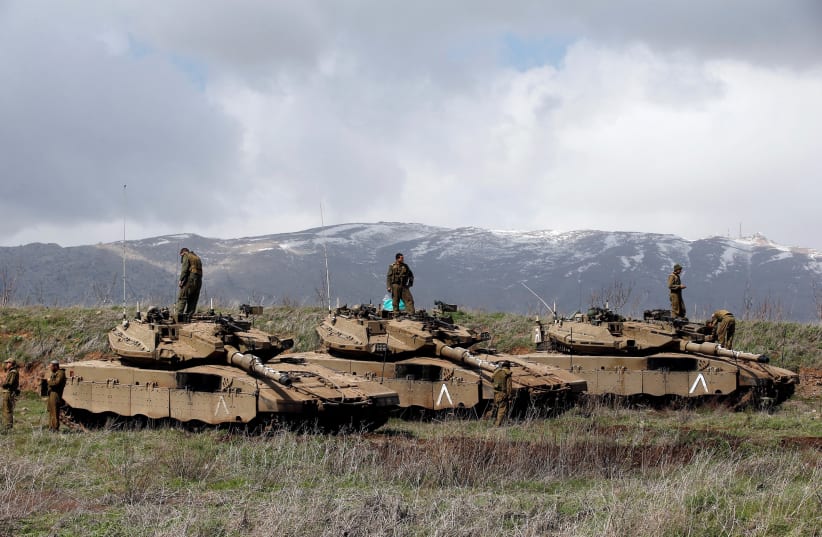
Israeli artillery forces struck the source of rocket fire from Syria on the Golan Heights on Tuesday evening, the IDF confirmed.
Sirens sounded in the towns of Neot Golan, Bnei Yehuda, and Givat Yoav, to the East of Lake Kinneret.
The IDF said two rockets were launched at Israel from Syria and fell in open fields.
IDF strikes terror cells in Lebanon
The IDF targeted a terrorist cell that fired anti-tank missiles at Israel from within Lebanese territory, it said on Tuesday.
The Israeli military responded with artillery forces to anti-tank fire directed at the northern border towns of Shutla and Menara. The IDF destroyed the weaponry used to launch the missiles, it added.
Go to the full article >>Gaza rocket lands in West Bank settlement, home damaged
Three homes in the settlement located on the western edge of the Seam Line were damaged.
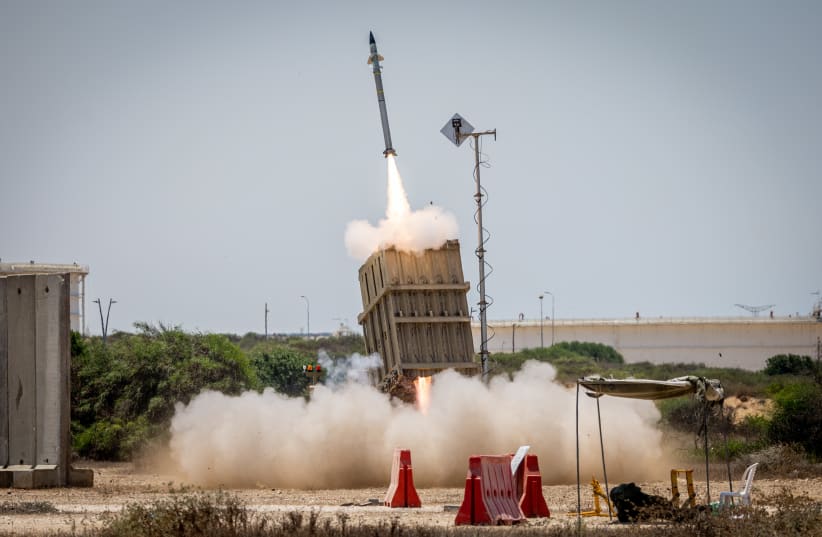
An Israeli home was reportedly damaged after a rocket fired from the Gaza Strip fell in the northwestern West Bank settlement of Alfei Menashe on Tuesday.
Rocket sirens across central Israel and the West Bank amid a heavy rocket barrage from the Gaza Strip, with sirens sounding from Rehovot and Nes Ziona through Elad and Rosh Ha'ayin to the Sharon region, where residents of Elkana, Etz Ephraim and more were told to seek shelter.
Residents of a number of settlements in the Samaria region of the West Bank were also told to seek shelter.
No casualties were immediately reported.
Heavy rocket barrages continue in Israel's South
Minutes later, sirens sounded across more cities and towns in central Israel, namely Yehud-Monosson and Or Yehuda. Rockets also sounded again in the southern city of Beersheba and nearby Negev towns and communities, as well as in Ashdod.
This is a developing story.
Go to the full article >>Rocket sirens sound across central Israel, West Bank
Rocket sirens across central Israel and the West Bank on Tuesday amid a heavy rocket barrage from the Gaza Strip.
Sirens sounded from Rehovot and Nes Ziona through Elad and Rosh Ha'ayin to the Sharon region, where residents of Elkana, Etz Ephraim and more were told to seek shelter.
Residents of a number of settlements in the Samaria region of the West Bank were also told to seek shelter.
This is a developing story.
Go to the full article >>Anti-tank fire reported near Lebanon border - IDF
Anti-tank fire toward the town of Shutla, near the Israel-Lebanon border, was reported by the IDF on Tuesday.
No casualties or wounded were announced.
This is a developing story.
Diaspora Jews offer their apartments to displaced Israelis
As part of this project, apartment owners delegate the responsibility of their properties to the WZO, which then houses the families that have been rendered homeless.
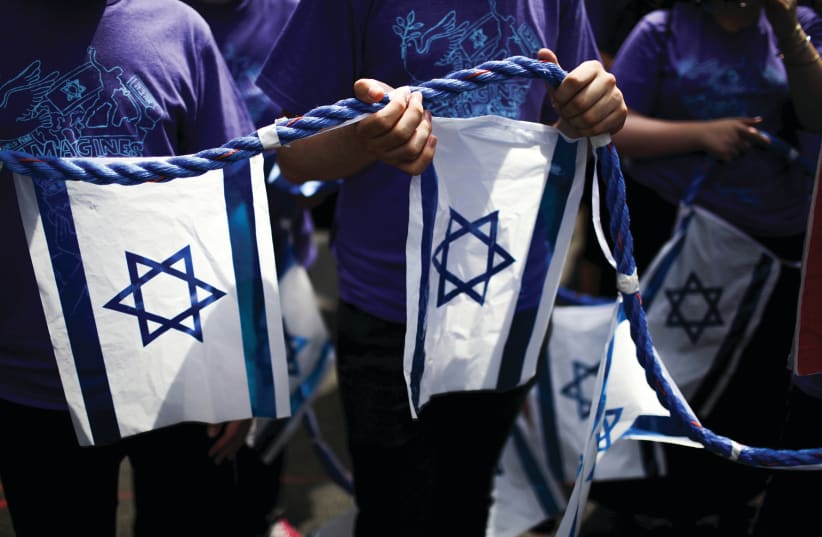
Diaspora Jews have offered 250 of their apartments to Israelis displaced from both Southern and Northern communities, which were evacuated due to the war with Hamas and Hezbollah. These apartments were provided by the owners, predominantly Jews living outside Israel. "I reached out to Jews in the diaspora and requested their support in our efforts to offer temporary housing for displaced Israelis until this war concludes," World Zionist Organization (WZO) chairman, Yaakov Hagoel, informed The Jerusalem Post on Tuesday.
As part of this project, apartment owners delegate the responsibility of their properties to the WZO, which then houses the families that have been rendered homeless.
The demand for long-term temporary accommodation has surged, with numerous families having lost their homes. Many of these families have either relocated to hotels or are staying with extended family in different parts of the nation.
The WZO project, titled "My Home is Your Home," was initiated by Hagoel. "The WZO utilizes every resource available to assist IDF soldiers, Israeli citizens, and Diaspora Jews," stated Hagoel. "Along with the organization's staff who are currently serving Israel on the battlefield, many volunteers and employees are contributing on the home front, leading numerous initiatives for the security and well-being of Israel and its people."
Recently, the WZO started reaching out to Jews both in Israel and the Diaspora who possess unoccupied apartments in Israel. They aim to establish a structured, professional framework to oversee the project. This framework includes a dedicated website, global contacts, and promotional campaigns in multiple languages such as Hebrew, English, French, and Spanish.
![American and Israeli Jews [Illustrative] (credit: REUTERS) American and Israeli Jews [Illustrative] (credit: REUTERS)](https://images.jpost.com/image/upload/f_auto,fl_lossy/c_fill,g_faces:center,h_537,w_822/433149)
Mutual responsibility
The World Zionist Organization commits to overseeing the apartment handover process and ensures each apartment is returned to its original state. The WZO has formalized agreements with both the apartment owners and the families who will reside in them. These contracts legally bind the WZO as the guarantor.
"The 'My Home is Your Home' effort embodies the shared responsibility between Diaspora Jews and Israeli citizens," remarked Hagoel. "It's heartwarming to witness this deep emotional connection, strengthening the unity of Israel during these trying times. Our gratitude extends to all the Jews, both in Israel and abroad, who have supported this initiative. A heartfelt thanks to everyone offering shelter to their fellow Israelis, ensuring they have a safe and peaceful haven amidst the intense conflict. United, we stand strong as one people."
Go to the full article >>Twelve Britons killed in Israel-Hamas conflict, says PM's spokesperson

Twelve British nationals were killed in the attacks by Hamas on Israel and another five are still missing, a spokesperson for British Prime Minister Rishi Sunak said on Tuesday.
Go to the full article >>Macron: We must build int'l coalition to defeat Hamas
“If Hezbollah will drag us into war, it should be clear that Lebanon will pay the price,” Herzog said.

An international coalition is needed to defeat Hamas, French President Emmanuel Macron said during his one-day solidarity visit to Israel in which he said that Israel’s war against terror groups in Gaza was also France’s war.
“This fight against terrorism is obviously a matter of existence for Israel, but its a matter of existence for all of us,” Macron told Prime Minister Benjamin Netanyahu when the two held a joint press conference in Jerusalem on Tuesday.
“I consider that it is an international coalition in order to fight against this terror group that we have to build,” he said.
He repeated what he told President Isaac Herzog during their meeting earlier in the day.
“We warned Hezbollah [and] passed very clear messages,” Macron said just hours after he arrived in a diplomatic effort to prevent the regionalization of the Gaza War that began on October 7.
Herzog said that Hezbollah and Iran were “playing with fire” on the country’s northern border in attempting to provoke a two-front war against Israel.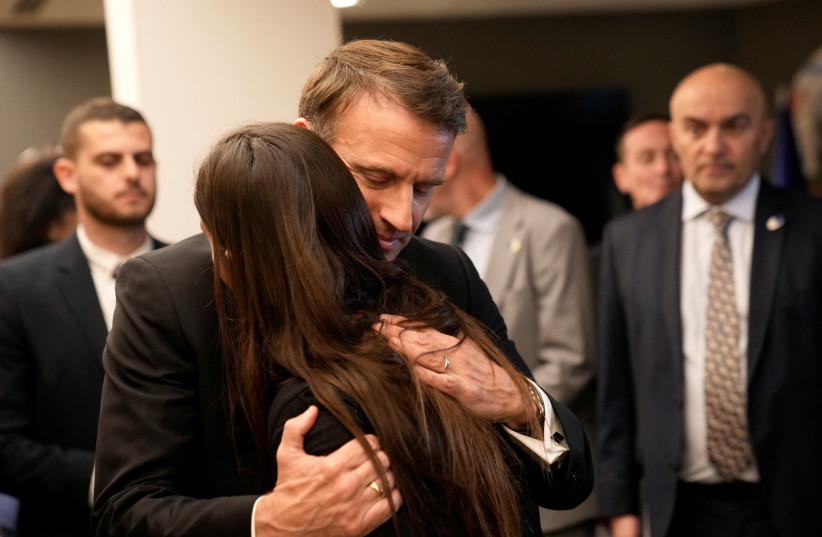
“If Hezbollah will drag us into war, it should be clear that Lebanon will pay the price,” Herzog said
“Lebanon can not be a sovereign member of the international community, its citizens carrying a Lebanese passport, but when it comes to Israel its citizens are not responsible.
“By international law we have the full right to defend ourselves,” Herzog said.
Iran, he clarified, is working to destabilize the region.
“We are not looking for a confrontation on our northern border or with anyone else. We are focused [in the south] on destroying Hamas infrastructure and bringing our citizens back home,” Herzog said.
The two men met in the aftermath of the October 7 Hamas infiltration into southern Israel in which over 1,400 civilians and soldiers were killed and another 222 were taken hostage.
Thirty French citizens were killed in that attack and another nine are missing.
Herzog told Macron that the “situation was complicated and fragile” and that Israel was demanding the full release of all the captives.
Separately, he told Macron, that he was worried by the rise of antisemitism around the world and in France.
Macron assured Herzog that Israel was not alone in its fight against terror.
“We stand shoulder to shoulder with you,” Macron said.
“I speak here on behalf of a country which experiences terrorist attacks,” Macron said.
“It is our duty to fight against these terror groups without any confusion and without enlarging the conflict,” he said.
Upon arrival, he tweeted that France was “bound to Israel through mourning.” He also met with bereaved families of the victims of the October 7 attack.
EN DIRECT | À Tel-Aviv, le Président @EmmanuelMacron rencontre le Président Isaac Herzog, Président de l’Etat d’Israël. https://t.co/024yCcIaW6
— Élysée (@Elysee) October 24, 2023
He is meeting with Netanyahu, Minister Benny Gantz (National Union), and former prime minister (Yair Lapid) who heads the Yesh Atid Party.
Macron will also travel to Ramallah where he will meet with Palestinian Authority officials.
Macron arrived as Israel and the United States are working to prevent the Gaza War with the Iranian proxy group Hamas, now in its 18th day, from developing into a two-front war that would include the Iranian proxy group Hezbollah on Israel’s northern border.
Possibility of a two-front war
The Biden administration is also concerned that Iranian proxy attacks on Israel could lead to direct military confrontation between Washington and Iran.
At a Foreign Press Center briefing US National Security Council spokesperson John Kirby told reporters that Iranian proxy groups ‘like Hamas and Hizballah and these militia groups in Iraq and in Syria” have over the weekend attacked “some of our facilities and our troops as well as our diplomats.”
‘I can tell you that we are certainly not blind at all to what Iran is doing,” Kirby said.
Go to the full article >>Freed Israeli hostage says she was held in tunnels, seen by doctor
Lifshitz is a peace activist who together with her husband helped sick Palestinians in Gaza get to hospital for years, her grandson told Reuters.
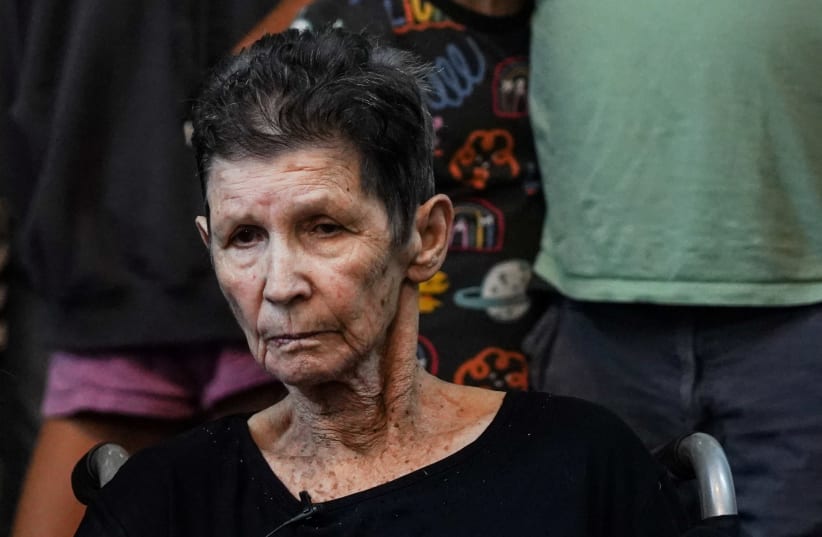
An elderly Israeli hostage who was released by Hamas overnight said she was beaten by militants as she was taken into Gaza on Oct. 7, but was then well-treated during her two-week captivity in the Palestinian enclave.
Yocheved Lifshitz, 85, was one of two women freed late Monday, leaving around 220 hostages still in the hands of Hamas.
Seated in a wheelchair, a frail-looking Lifshitz told reporters that a doctor had visited her while she was held in a network of tunnels within Gaza and that all her needs had been taken care of.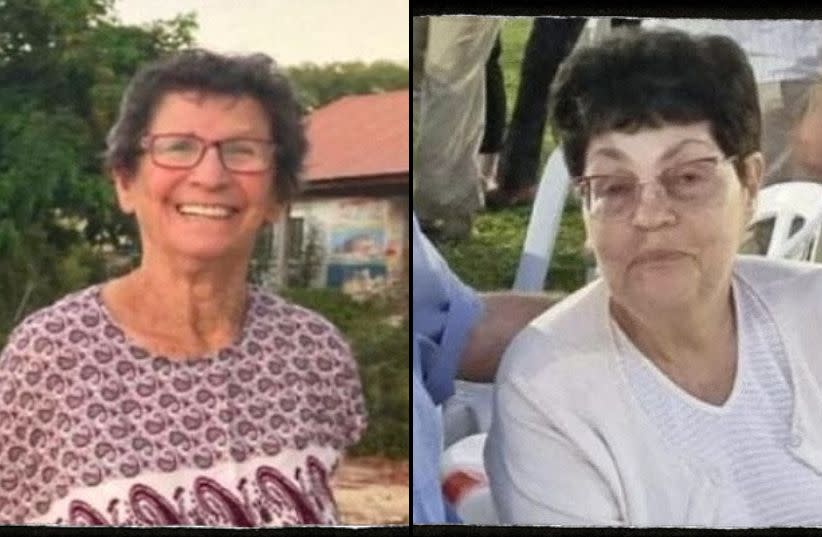
Lifshitz is a peace activist who together with her husband helped sick Palestinians in Gaza get to hospital for years, her grandson told Reuters.
Husband still being held captive
Hamas said they released Lifshitz, and a second woman, Nurit Cooper, 79, on health grounds, after taking them and more than 200 others hostage during Hamas's October 7 massacre, in which terrorists killed 1,400 people.
Lifshitz and her 83-year-old husband, Oded, were kidnapped from their home at the Nir Oz kibbutz, close to the border with Gaza in southern Israel, the Israeli prime minister's office said late on Monday. Oded remained captive, it added.
"They are human rights activists, peace activists for all their life," grandson Daniel Lifshitz told Reuters in Tel Aviv before the release was confirmed."For more than a decade, they took ... sick Palestinians from the Gaza Strip, not from the West Bank, from the Gaza Strip every week from the Erez border to the hospitals in Israel to get treatment for their disease, for cancer, for anything," he added.
Challenge in Gaza with Hamas's underground tunnels is unique - expert
Tunnel network includes 1,300 tunnels, spanning approximately 500 kilometers in total, with some of the tunnels located up to 70 meters underground.
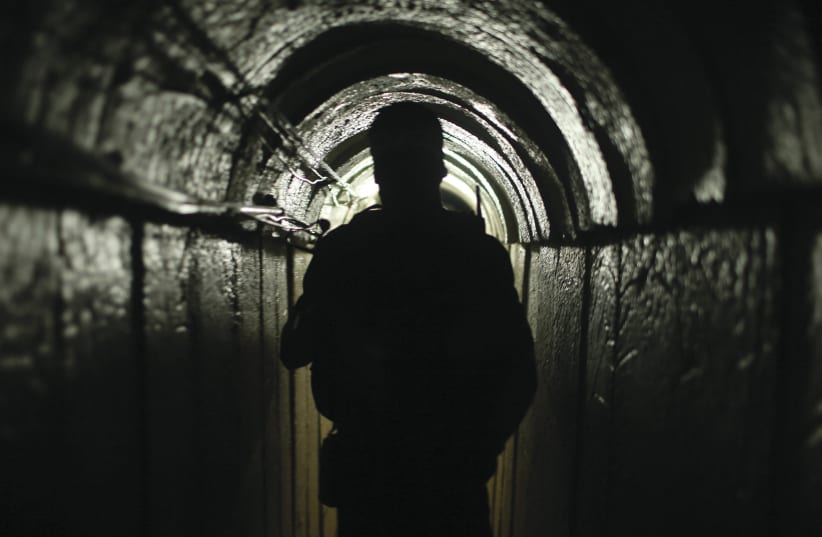
Military experts argue that the tunnel network constructed by Hamas is expected to pose one of the greatest challenges for the IDF if there were to be a ground invasion into the Gaza Strip. Apart from the underground facility network of North Korea, Hamas operates what is estimated to be the world's largest tunnel network.
John Spencer, head of Urban Warfare Studies at the Modern War Institute at the United States Military Academy at West Point, stated that the "challenge in Gaza with underground tunnels is unique."
In an article published a few days ago, Spencer, a former officer in the US Army, added that the vest and expanding tunnel network is a problem that has "no perfect solution and awaits the Israeli ground forces."
Estimates suggest that the tunnel network includes 1,300 tunnels, spanning approximately 500 kilometers in total, with some of the tunnels located up to 70 meters underground.
According to reports, most of these tunnels are merely two meters high and two meters wide. Experts believe that the captives Hamas took during the terrorist attack on Israel on October 7 might be held within these tunnels, potentially used as storage places for weapons, food, water, and fuel.
Researchers who have previously investigated Hamas's tunnel network think that some of the organization's leaders are positioned within these tunnels.
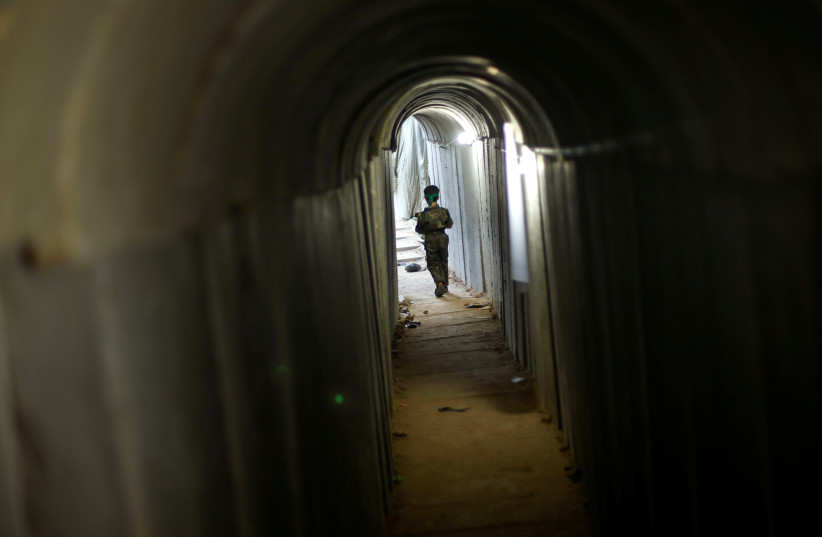
Tunnels will further complicate the combat scenario
Experts say that the tunnels will further complicate the combat scenario in the event of an Israeli ground invasion into the Strip, and Spencer noted that they allow "fighters to move between various different combat sites safely and freely."
Mike Martin, a war psychologist at King's College London, said, "In short, these tunnels balance out by neutralizing Israel's advantages in firepower, tactics, technology, and organization, as well as the risk of being unable to distinguish between military and civilian targets as required by international law. Therefore, the IDF faces challenges regarding military operations within civilian areas, which can be described as three-dimensional warfare."
He explained what he meant by three-dimensional warfare, stating, "There will be elements moving above the living towers and elements operating beneath the ground. If a building is destroyed, it becomes a pile of debris, which then becomes very destructive, in the sense of a place from which any armed person can defend and shoot. 'Urban warfare is one of the most difficult terrains any army could contend with.'"
The tunnels in the Gaza Strip were initially designed to smuggle goods into and out of the Strip and Egypt, but over time, due to increased Israeli aerial surveillance through drones and other electronic espionage equipment, Hamas began to expand the tunnel network. However, the IDF only realized the danger and complexity of these tunnels following the military operation in Gaza in 2014.
As a result, the Israeli government began constructing an underground barrier along the Gaza Strip border to prevent infiltration through tunnels. Experts say it's difficult to locate the tunnels as they might be built beneath various structures, but there are different ways to identify them, such as using ground-penetrating radar and techniques to measure magnetic, thermal, and acoustic fingerprints. However, most of these tunnels are revealed through human intelligence, according to a 2017 conference by the RAND Research Center on the subject.
In this instance, human research, according to the RAND Corporation, was intended to help locate the sudden disappearance of a Hamas activist's phone signal, tracked on its way to the tunnels.
In her book "Underground War," Daphne Richmond-Barak, one of the most knowledgeable experts in the field, stated that tear gas or chemicals are used to erase tunnels, but these methods are currently illegal.
Experts say these tunnels can be bombed while Israel possesses what are known as "bunker-buster bombs" designed to penetrate underground. However, considering the length of the Gaza Strip is about 40 km, its width between 6 and 14 km, and its population is around 2.2 million inhabitants (making the Strip one of the most densely populated areas in the world), it is difficult to facilitate this option even if Israel determines the locations of the tunnels.
According to researchers at the RAND Corporation, Israel has used what's called "precision-guided munitions" in the past to close these tunnels, but they were not highly successful.
The researchers stated that fighting within the tunnels is challenging because they are very dark and cold, exacerbated by gunfire, while using weapons inside causes dust and can be very dangerous. Due to these risks, IDF soldiers were previously only allowed to enter tunnels after being secured by special teams.
Since 2014, the IDF has deployed special combat units for these tunnels, trained around simulated tunnels, and learned to use specific sensors to understand the happenings within the tunnels and specialized elements for fighting within them using robots and dogs.
Spencer noted that he had never heard of an army so well-trained in tunnel warfare as the Israeli military. However, Richmond-Barak wrote in a report to the Financial Times that Israel would "need to engage in a long-term and extensive aerial and ground operation to destroy this underground infrastructure. Even this scenario, which may cause significant casualties, is unlikely to succeed in destroying the entire network of tunnels in Gaza."
Mike Martin agrees that these tunnels represent a significant challenge: "Even though Israel has all the smart methods like drones and confidential information that can be used to locate tunnels, I warn of one thing: there is a gap in the Israeli intelligence system. They made a miscalculation in the scale of an attack of what Hamas did on October 7."
In an interview with Deutsche Welle, he added, "This tells us that they have some blind spots where it seems that after Israel had an information gap, it really won't know what Hamas intends to do or how it plans to defend Gaza or its other plans. So, it seems there are big question marks about what Israel knows and doesn't know."
Go to the full article >>Freed Israeli grandmother is peace activist who helped sick Gazans, grandson says
Yocheved Lifshitz, 83, and her husband, whom Hamas did not release, took Palestinians from the Erez border crossing to Israeli hospitals every week her grandson says
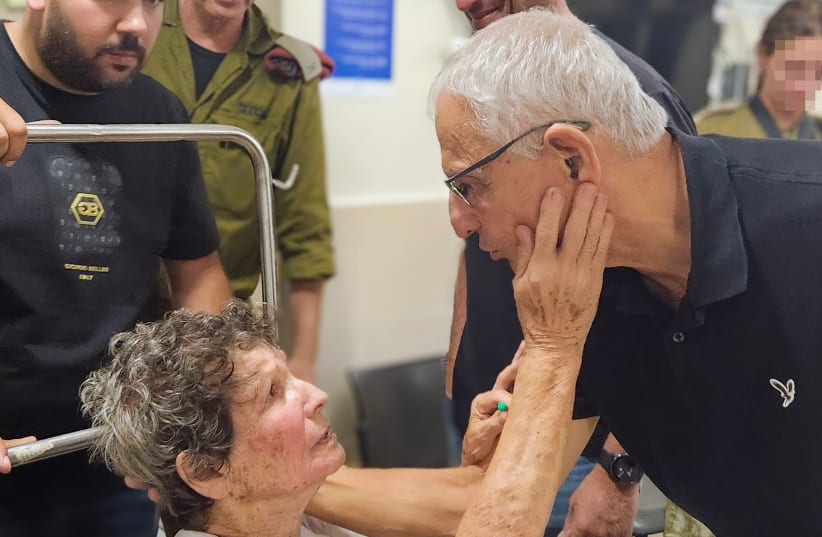
Yocheved Lifshitz, an Israeli grandmother released by Hamas terrorists on Monday, is a peace activist who together with her husband helped sick Palestinians in Gaza get to hospital for years, her grandson told Reuters.
Hamas said they released Lifshitz, 85, and a second woman, Nurit Cooper, 79, on health grounds, after taking them and more than 200 others hostage during Hamas's October 7 massacre, in which terrorists killed 1,400 people.
Lifshitz and her 83-year old husband, Oded, were kidnapped from their home at the Nir Oz kibbutz, close to the border with Gaza in southern Israel, the Israeli prime minister's office said late on Monday. Oded remained captive, it added.
"They are human rights activists, peace activists for all their life," grandson Daniel Lifshitz told Reuters in Tel Aviv before the release was confirmed.
"For more than a decade, they took ... sick Palestinians from the Gaza Strip, not from the West Bank, from the Gaza Strip every week from the Erez border to the hospitals in Israel to get treatment for their disease, for cancer, for anything," he added.
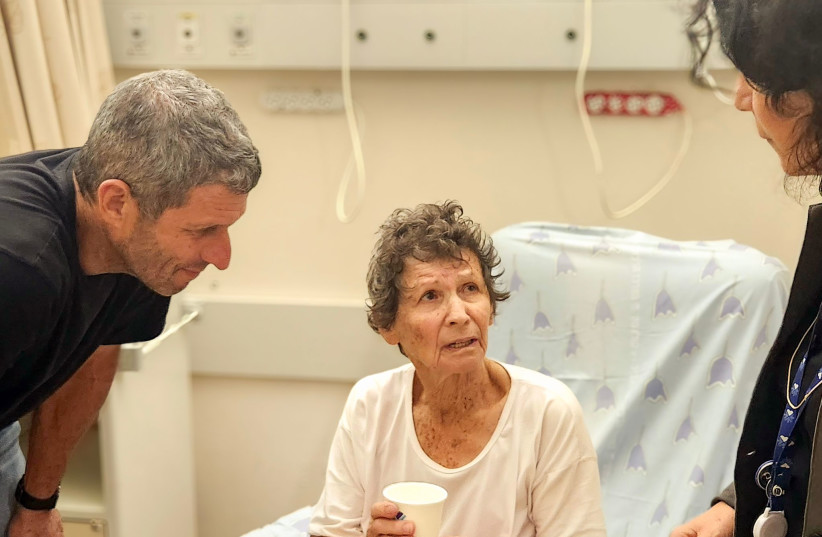
Hamas terrorists also kidnapped her husband, still hold him in Gaza
Hamas posted a video on its Telegram page appearing to show Lifshitz being handed over to workers with the International Committee of the Red Cross (ICRC), which said it helped transport them out of Gaza.
In the video, a man carrying a long gun and wearing a bullet proof vest emblazoned with a Hamas flag escorts Lifshitz to a white ICRC van. Before entering the van, she reaches her hand out to the man and tells him "salam," Arabic for peace.
Reuters could not immediately verify the video.
In a message passed to Reuters by a family friend, Lifshitz's daughter Sharon in London wrote: "While I cannot put into words the relief that she is now safe, I will remain focused on securing the release of my father and all those - some 200 innocent people - who remain hostages in Gaza."
The two women were the third and fourth hostages to be freed. On Friday, Hamas on Friday released an American woman and her daughter.
Go to the full article >>Israel, Hamas at war: What you need to know
- Hamas launched a barrage of rockets on October 7, with thousands of terrorists infiltrating from the Gaza border
- Over 1,400 Israelis and foreign nationals were murdered as of Tuesday afternoon, and more than 5,431 were wounded according to the Health Ministry
- Israel reportedly preparing for a ground invasion of the Gaza Strip
- IDF: 222 families of Israeli captives in Gaza have been contacted